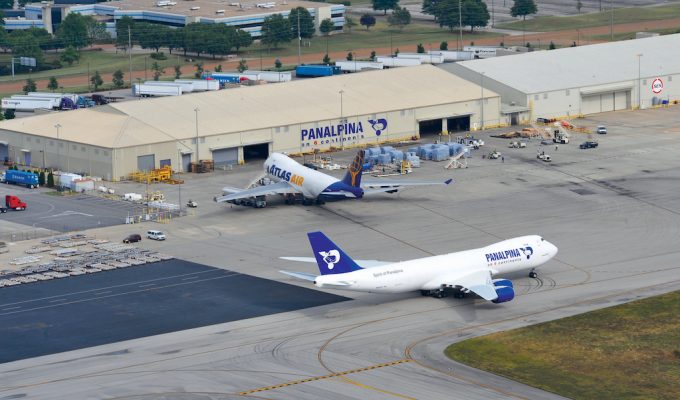Supply chain disruption costly for shippers, but helps build resilience, says Maersk
The regularity of ‘black swan’ events has meant unexpected costs for European shippers, according to ...

Panalpina is looking to play a leading role in international e-commerce logistics.
The European logistics behemoth claims to have an edge over its competitors on flows between Asia and Europe that results in a solid reduction in transit times.
Panalpina has tackled one of the major lanes for international e-commerce, the sector between southern China and Europe, through improved clearance conditions in Hong Kong and Amsterdam.
According to Lucas Kuehner, global head of air freight, the ability to perform bulk customs clearance in ...
'Disastrous' DSV-Schenker merger would 'disrupt European haulage market'
New senior management for DSV as it readies for DB Schenker takeover
Volumes set to 'fall off a cliff' as US firms hit the brakes on sourcing and bookings
Asian exporters scramble for ships and boxes to beat 90-day tariff pause
Amazon pushes into LTL for small package fulfilment and UPS does a u-turn
Temporary tariff relief brings on early transpacific peak season
Pre-tariff rush of goods from US to China sees air rates soar, but not for long
Forwarders 'allowing the fox into the chicken run' by supporting 'hungry' carriers

Comment on this article